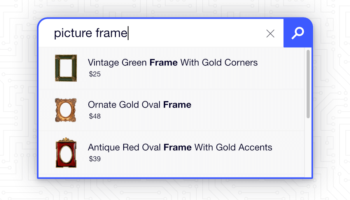If you’re anything like us, the recent announcement of Google Wave leaves you salivating. Wave is Google’s new breakthrough email/blogging/twitter/facebook/project manager/IM technology, a landmark new product that Microsoft only wishes they’d seen coming.
There are enormous implications of how and what the product can do — Mashable has probably done the best job of itemizing Wave’s features and CNET has been following the trail since they first got wind that something big was happening at I/O — but for us, the most significant aspect of Google Wave is what it says about Google’s long-term vision of the web.
Google is just as vested in the long-term health, vitality and growth of the internet as any car manufacturer is in streets and highways. But unlike said car manufacturers, Google seems keenly poised on the road ahead, and is already taking countermeasures to anticipate the next big thing. They could easily stick to the safe position, “We’re the Search guys,” and ride out web search and paid search ads until the eventual diminish of what we currently know now as web search. But instead, they’re forging ahead.
Wait… Did an SEO guy just say “the eventual diminish of … web search”? Yes, I did. And here, let me repeat it: Google is anticipating the eventual diminish of web search.
Now that I’ve gotten the shocking thing out of the way, let me clarify what I mean by that:
- Organic search, in terms of traffic is still remarkably healthy and is increasing. Nothing is driving more traffic anywhere than SEO right now.
- In contrast, organic search’s companion services, paid search (PPC) is suffering. Advertising budgets have been hit hard by the recession and across all industries — Hitwise has great reports for both US PPC spend and UK PPC spend. That’s not saying that paid search traffic isn’t worthwhile — it is — advertisers are just changing their spending patterns.
- Social media is changing everything. Social media sites continue to hit critical mass. Twitter’s search feature, while not subject to the qualitative rigors of organic search engines, is providing a provocative model for real-time search. And we all know it will get better. Fast.
Real-time search doesn’t mean that Google is going to fold shop and shut down Google.com. It doesn’t mean that PPC won’t continue to be a multi-billion dollar industry. It doesn’t mean that the efforts you put into organic search now won’t pay you rich dividens. What it does indicate is that at some point that people will start to lean on social networks to do some of the searches they currently use Google to do. In fact, some people already are.
As one blogger writes:
Google used to get 100% of my queries. Today, I bet Twitter is getting at least 10% of them. There are some things Twitter is just flat out better at for getting information than Google.
And Google is well aware of this. Google knows that people are thirsty for insanely fresh information, and that while more effort than ever is being put into websites and keeping them relevant, at the same time companies in nearly every industry are starting to invest seriously in social media. If Google takes the position that, “Gee, people shure durn love typing stuff into our search engine, let’s keep at this forever” they will find themselves obselete. Not today, or tomorrow. But eventually.
As Seth Godin points out, the next Google isn’t Google + a bunch of features. It’s the game-changing breakthrough technology that anticipates the future and gets there first.
Google Wave is a bold statement in this direction. As are the other incremental, yet impressive additions to Google search that they’ve announced in the last month — Google search options and Google Squared. All of this points to Google knowing full well that evolving their search product is integral to survival, and pioneering new technologies is essential for growth.
If, as a business owner, this sets your head spinning, I sympathize. SEO was just starting to get comfortable! But on the bright side, if you’ve been doing it right — seeking how you can provide unique value to your customers, putting out good quality information and engaging in the conversation, you’re already well ahead of where most of the world is.
If you’re getting good organic search now, and are aware of and entering the social media space in a strategic and sustainable way, you’re already well-positioned to perform well when social media takes 20-30% (or more!) of the kinds of queries that people type into Google now. The specific techniques used to get your message in front of people is going to continue to change, but the core principle — being engaged directly in your marketing efforts and humanizing your business — is a fundamental change that is here to stay.
Stay tuned, there will be more on this. And contact us if you’d like to see a webinar on this topic.





